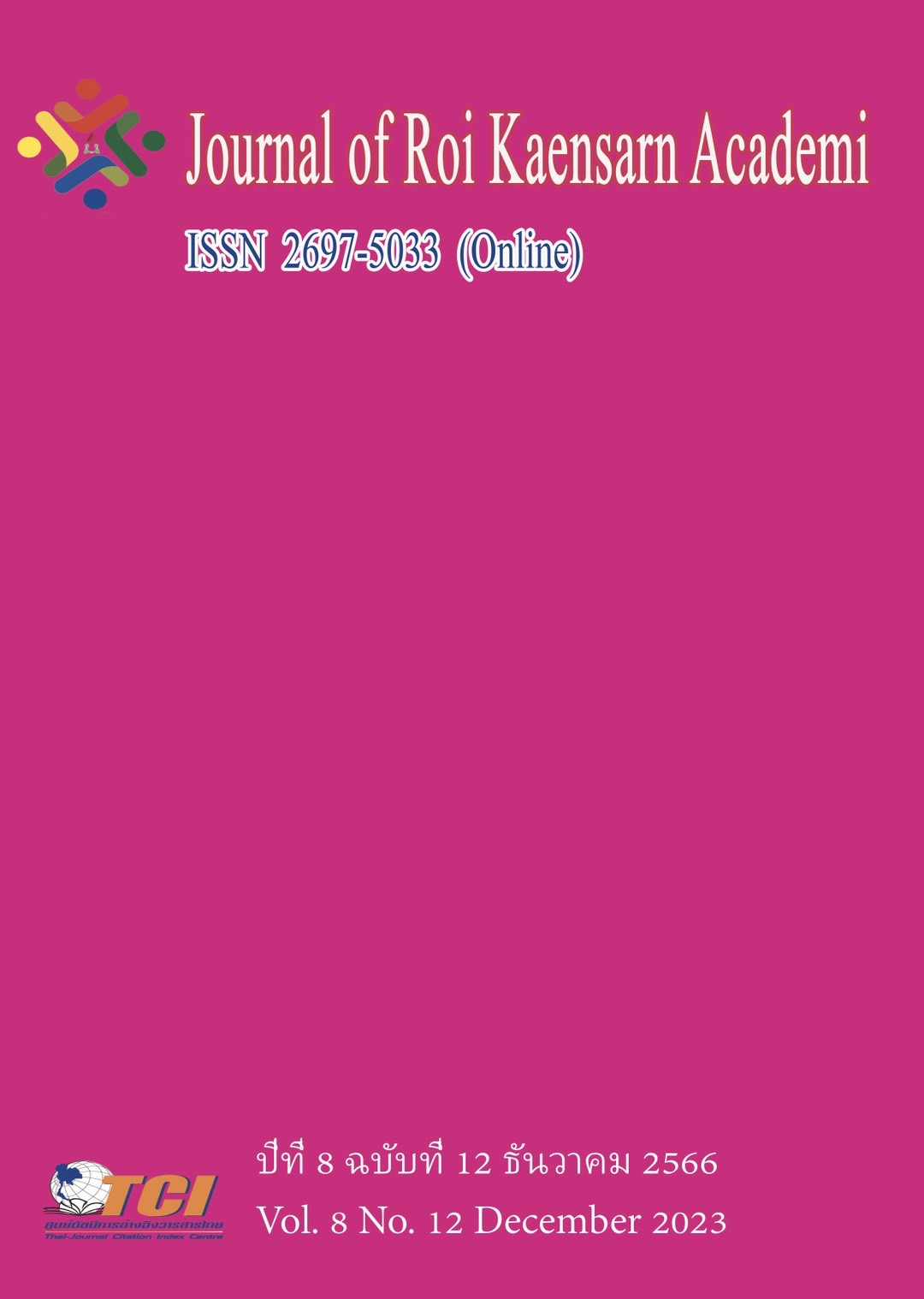The Development of Instructional Model According to Immersive Learning in Virtual Reality Environment to Enhance Tour Guide Students’ Oral Communication Ability
Main Article Content
บทคัดย่อ
The objectives of this research are: 1) to investigate the status of oral communication skills of undergraduate tour guides in Hezhou University and the views of professional teachers based-on immersive-learning teaching model in the virtual environment; 2) to develop the immersive-learning teaching model(PIE) in the virtual reality environment; 3) to implement the course teaching experiment and to evaluate the efficiency of the PIE teaching model.
This research instruments includes 1) questionnaire on oral expression skills of undergraduate tour guides; 2) questionnaire on oral communication teaching model of professional teachers; 3) development documents of teaching model, use instructions, virtual scenic spot guide explanation teaching plan, virtual accompany service guide teaching plan; 4) pre-test and post-survey questionnaire of oral communication skills of undergraduate tour guides. Research data collected were analyzed by statistical measures such as percentage, mean, standard deviation, t-test values, and p-values. The study finds that the overall performance of tour guide oral communication skills is moderate at Hezhou University. The sample population t-test results also show that the PIE teaching model is significant for enhancing the undergraduates tour guide oral communication skills with t-test(= 65.56 to 80.33, t=14.80, p=.000).
Article Details
เอกสารอ้างอิง
Cheng, X.,Liu, G. & Li,S.(2022).Reform of Educational Aesthetics Practice Based on Virtual Reality Technology Establishment of New Situational Teaching Model.Journal of Southwest University,48(1),171-180.
Dewey, J.(1937). Democracy and Education An Introduction to the Philosophy of Education. 28th edition printed by the Macmillan Company, New York.
Fu, B. (2021). Comparison of virtual imitation real training system of tourism management major in several vocational colleges. China Management Informationization, 24(14), 204-205.
Gu,Z., Zhang, J. and Zhou, C.(2022).Tourism Vocational Education Reform Driven by Information Technology: Logic Basis,Reform Challenges and Innovation Approaches.Heilongjiang Researches on Higher Education,(2),122- 05.
Hui,T. (2020).An analysis of the Chinese immersion program base on CBI in the United States. Chinese Teaching in the World,34(4),532-545.
Intarasompun, W., Muangnual, P., and Punchatree, N. (2022). Active Learning Management and Using E-Portfolio as Authentic Assessment for Teacher Students. Journal of Yanasangvorn Research Institute Mahamakut Buddhist University, 13(2),108–118. Retrieved from https://so04.tci-thaijo.org/index.php /yri/article/view/262856
Li, J.(2013).Learning Sciences and Children's Situational Learning:Happy and Efficient Instructional Design.Educational Research,(11),81-91.
Li, W.(2023).The Application of Immersive Teaching in the Teaching of English in Primary Schools.[Master's dissertation, Southwest University].
Liu, R.X.(2021).An Empirical Study on Immersion Learning Environment Promoting the Development of Middle School Students’ Spatial Reasoning Skills. [Doctoral Dissertation, East China Normal University].
Ministry of Industry and Information Technology.(2022). Action Plan for Integrated Development of Virtual Reality and Industry Application (2022-2026), China. Retrieved from https://www.gov.cn/zhengce/zhengceku/2022-11/01/content_572 3273.htm.
Moore, M. G.& Kearsley, G. (1996). Distance education: A systems view. Belmont, CA: Wadsworth.
Shao,N., Wang, J.(2017).Research and Practice for the Embodied Cognition Approach in Foreign Language Teaching Based on 3D Virtual Situations: A Case Study of Russian Teaching.Foreign Languages and Literature,33(4),137-144.
Tosati, S., Sitthisopasakul, T., and Intarasompun, W. . (2021). Enhancing Learning Process by Integrating Contemplative Education Coaching System and Research Base Learning (Ccr) to Strengthen Teacher’s Competencies in Educational Measurement Evaluation and Research Program, Faculty of Education, Bansomdejchaopraya Rajabhat University. Journal of Modern Learning Development, 7(1),124–137.
Wang, W., Cao, T. and Chen, M.(2022). Immersive Learning: A New Learning Paradigm of Vocational Education Supported by Modern Information Technology.Contemporary Vocational Education,(2),80-88.
Wichean Intarasompan, and Jittawisut Wimuttipanya (2021). A quality in education of lower central network school with coaching and mentoring pass online system. Turkish Journal of Computer and Mathematics Education. Vol.12 No. 8 (2021). Retrieved from https://turcomat.org/index.php/turkbilmat/article/view/3819
Zhang, J.(2001).Traditional Teaching Idea to Constructive Teaching Idea:Side Discussion of Mission of Modern Educational Technology.Theory and Practice of Education.21(09),32-36.
Zhang, J.,Guo,C., and Zhu, Z.(2020).International Experience and Enlightenment in Key Competency Research.Contemporary Vocational Education,(01),78-86.
Zhang, X.(2017). Situational Teaching in College English: Cognitive Motivation, Implementation Principle and Design Practice.University Education Science,(06),63-68.
Zhuang, X.,Q.(2021).The application of VR technology in the construction of tourism specialty.University,(43),79-81.

